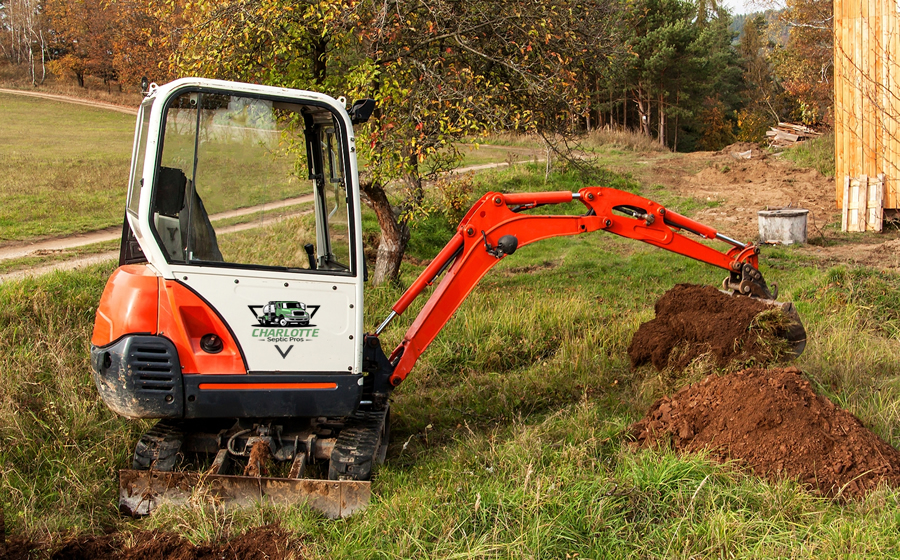
09
Septic tanks are an essential part of many homes and businesses, providing a crucial service that removes waste and keeps our environment clean. However, like any other system, septic tanks can be damaged and eventually ruined if not maintained properly. In this article, we'll explore some of the things that can ruin a septic tank, including the importance of regular septic tank pumping and working with a reputable septic company.
One of the most significant threats to a septic tank's longevity is neglect. Many people mistakenly believe that septic tanks are a set-it-and-forget-it system. However, septic tanks require regular maintenance to function correctly. Over time, waste and solids can accumulate in the tank, which can cause blockages and backups. These blockages can cause wastewater to back up into the home or business, leading to costly repairs and potential health hazards.
To prevent this from happening, it's essential to have your septic tank pumped regularly. The frequency of septic tank pumping depends on several factors, including the size of the tank, the number of people using it, and the age of the tank. Generally, septic tanks should be pumped every three to five years, but it's always best to consult with a septic company to determine the optimal schedule for your particular system.
Another factor that can ruin a septic tank is flushing the wrong materials down the drain. Many people mistakenly believe that their septic tank can handle anything they throw at it. However, this is far from the truth. Flushing non-biodegradable materials, such as diapers, wipes, and feminine hygiene products, can cause blockages in the system. Similarly, pouring grease, oil, and other fats down the drain can cause problems by clogging pipes and preventing wastewater from flowing through the system.
To avoid these issues, it's essential to be mindful of what you flush down the drain. Make sure that everyone in your household understands what can and cannot go into the septic system. This includes items like food scraps, coffee grounds, and paper towels, which should never be flushed down the toilet or poured down the drain.
Another thing that can ruin a septic tank is heavy usage. If too much water flows into the tank at once, it can overload the system, causing it to fail. This is especially true during times of heavy rainfall when the ground is already saturated with water. To prevent this from happening, it's important to conserve water whenever possible. This includes fixing leaks, taking shorter showers, and using high-efficiency appliances.
Finally, working with Charlotte Septic Pros is crucial to ensuring the longevity of your septic tank. We will not only pump your tank on a regular schedule but will also provide inspections and maintenance to ensure that everything is functioning correctly. We also provide guidance on what you should and should not flush down the drain, as well as advice on conserving water and preventing blockages.
When choosing a septic company, it's important to do your research. Look for a company that has a good reputation in the community and has been in business for a long time. You should also look for a company that is licensed and insured, and that uses modern equipment and techniques to provide the best service possible.
To ensure the longevity of your septic tank, it's essential to have it pumped regularly, be mindful of what you flush down the drain, conserve water whenever possible, and work with a reputable septic company. By taking these steps, you can help ensure that your septic system functions correctly for many years to come.

22
Can Bacteria Additives Eliminate the Need for Pumping? If you own a home with a septic system, you’ve probably seen…
Read more
12
A single slow drain in your home can feel like a minor inconvenience. Maybe the sink takes a little longer…
Read more
05
Are Slow Drains a Septic Issue or Just a Clog? Slow drains are one of those household problems that start…
Read more
02
What Septic Service Techs See That Homeowners Miss Most homeowners only think about their septic system when something goes wrong.…
Read more
21
Simple Habits That Protect Your Septic System A well-functioning septic system does its job quietly, but the moment something goes…
Read more
14
Pump Now or Pay Later: The Real Cost of Skipping Maintenance A properly functioning septic system is easy to forget…
Read more
11
Why Your Septic System Always Acts Up at the Worst Time Homeowners often feel that septic problems strike at the…
Read more
04
Early Warning Signs Your Septic Tank Needs Pumping For homeowners who rely on a septic system, routine maintenance is not…
Read more
29
Why Does My Septic System Smell Fine One Day and Terrible the Next? If you own a home with a…
Read more
19
Is Your Septic System Overdue? Simple Home Checks You Can Do Today For many homeowners, the septic system is a…
Read more